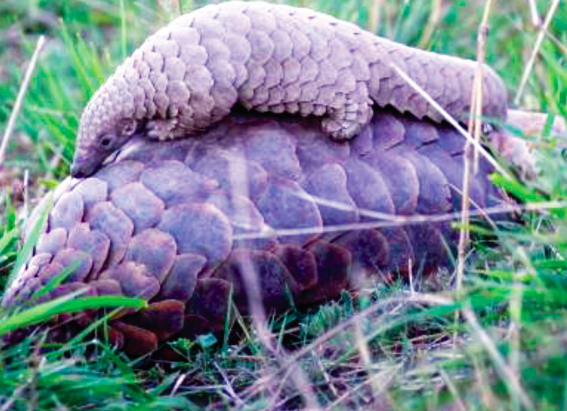

pangolins/KWS
A new investigation has raised
concerns that TikTok is being used by some traders in Lomé, Togo, to advertise
and sell carcasses of endangered wild animals—including the white-bellied
pangolin.
The findings, released by World
Animal Protection (WAP), highlight the growing challenge of online platforms
being misused to facilitate wildlife trade, often outpacing traditional
enforcement mechanisms.
“We are seeing social media becoming
a new marketplace for endangered wildlife. It is easily accessible and largely
unregulated, placing a direct threat to species' survival,” WAP head of research Dr Angie Elwin said.
She cautioned that gaps in the enforcement of existing community standards online risk giving traders access
to global buyers.
Researchers reviewed 80 publicly
available TikTok videos posted between November 2022 and April 2024.
Together, they featured more than 3,500 smoked animal carcasses of 27 species—many of them protected under national and international law.
Among them were at least 130 white-bellied
pangolins, a species listed as endangered by the International Union for
Conservation of Nature and banned from international commercial trade
under Cites Appendix I.
The videos analysed had nearly 1.8
million views, 53,000 likes and more than 6,000 shares. The most popular clip,
featuring smoked pangolins, attracted more than 216,000 views.
With TikTok now boasting more than 1.5
billion monthly users, researchers say the platform’s global reach makes it a
powerful driver of trends—including, in this case, the visibility of illicit
wildlife products.
Pangolins, shy nocturnal mammals
covered in keratin scales, are considered the most trafficked mammals
worldwide. Their meat is prized across Asia and Africa, while their scales are
used in traditional medicine.
Despite a global ban on their
commercial trade, it is estimated that as many as 200,000 pangolins are
consumed each year in Asia.
The study notes that local and regional demand—not just international trafficking—is now fuelling the trade.
On TikTok, some traders promoted wild meat for its taste and supposed health
benefits, potentially normalising the consumption of protected species to vast
online audiences.
Beyond biodiversity loss,
researchers warn the trade carries serious public health risks. Animals
featured in the videos, including pangolins, mongooses, rodents and jackals,
are known carriers of zoonotic pathogens.
Handling and consuming wild meat, they say, could expose communities to dangerous diseases.
Animal welfare is
another concern, with reports indicating that pangolins and other species often
endure extreme suffering during capture and slaughter.
“In West and Central Africa, wild
meat has long been valued for its taste, cultural importance and role in
livelihoods,” said Delagnon Assou, a researcher at the University of Lomé and
lead author of the study.
“But the rise of social media sales
is transforming the scale and nature of this trade. What was once a local,
traditional practice is now reaching audiences far beyond national borders,
raising urgent concerns for survival of species, public health and community
sustainability.”
The research calls for action from governments, conservation groups and social media companies.
WAP recommends that platforms strengthen enforcement of their own community guidelines, deploy automated content detection systems and run awareness campaigns on endangered species.
Governments are urged to harmonise wildlife laws, create alternative
livelihoods to reduce dependence on wild meat and enforce Cites regulations.
Conservation groups, meanwhile, are encouraged to invest in education campaigns
to reduce demand.
“Online platforms are driving new patterns of demand and posing fresh challenges for enforcement,” Elwin said.
“If action is not taken, extinction could unfold in real time. This is a wake-up call—global cooperation is urgently needed to protect endangered species.”



![[PHOTOS] Why KWS is moving wildlife from Kedong Ranch](/_next/image?url=https%3A%2F%2Fcdn.radioafrica.digital%2Fimage%2F2025%2F08%2Fcf5dc159-a465-4460-aaea-a4261c9aeae0.jpeg&w=3840&q=100)














